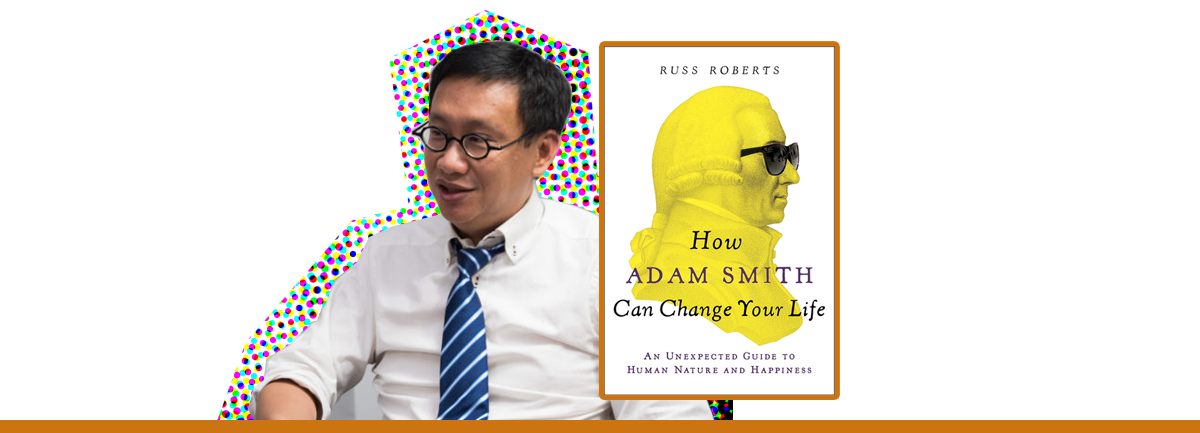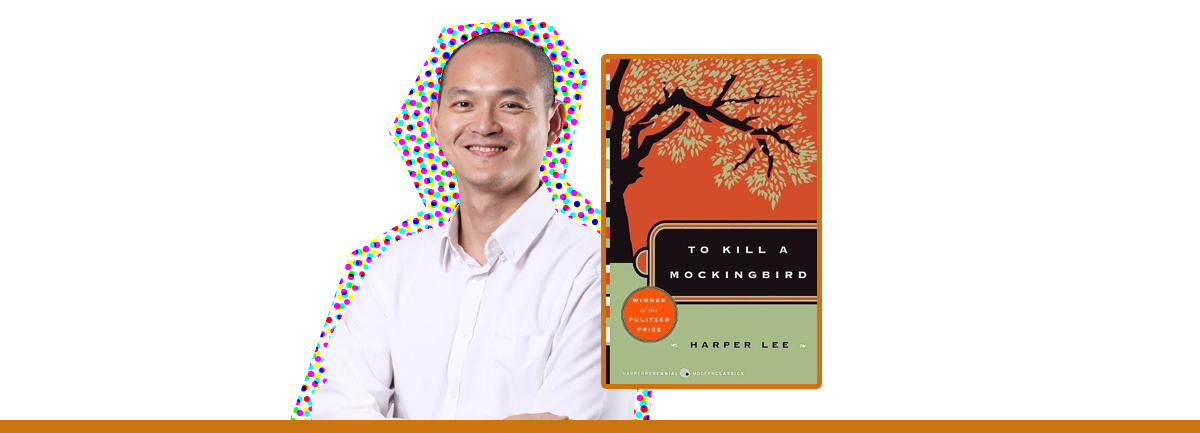Research and advocacy of progressive and pragmatic policy ideas.

What do our MPs read?
Find out what books our MPs recommend
By Shalini Muniapan27 December 2019

Ever wondered what books our MPs read? As ardent bibliophiles and avid book hoarders, we at The Centre have!
In conjunction with the announcement of Kuala Lumpur as the World Book Capital 2020 and the #MalaysiaMembaca initiative by Education Ministry, we asked all of our Member of Parliaments (MPs) two questions about the books they have read:
Question 1: What was the last book you read? (Tell us more about it)
Question 2: What is the one book you would suggest for everyone to read? Why?
And here are some of their answers, in their own words:
1. What was the last book you read?

YB Nik Nazmi Nik Ahmad (MP for Setiawangsa)
Where Power Stops: The Making and Unmaking of Presidents and Prime Ministers by David Runciman.
This book looks at American Presidents and British PMs such as Lyndon B. Johnson, Margaret Thatcher, Bill Clinton, Tony Blair, Barack Obama, Gordon Brown, Theresa May and Donald Trump. Individually, they all aspired for the highest office, through various ways. Some such as LBJ, Thatcher, Clinton, Blair, Obama are transformational leaders in their own right, yet they found the power they craved to be based on an illusion. This not only creates frustrated politicians but frustrated voters. The election of Trump in the US and victory of Brexit in the UK are outcomes of the frustration of the voters in the two countries.
Goodreads Link: https://www.goodreads.com/book/show/44778051-where-power-stops

YB Dr. Ong Kian Ming (Deputy Minister of International Trade and Industry, & MP for Bangi)
AI Superpowers: China, Silicon Valley and the New World Order" by Lee Kai-Fu.
This book was on the Economist recommended reads for 2018 and was given to me as a gift at one of the events I officiated. I wanted to dig into this book as it provided a researcher (the author is a PhD holder in the area of speech recognition and a pioneer in AI when it was still not very sexy) and an investor perspective (the author is now part of a few tech funds investing in AI in China and the US) on a topic which is very important for my Ministry, MITI.
The book makes very strong points to debunk the notion that China is merely a copier of technologies from other countries. While this may have been the case in the early stages of China’s growth when the economy first opened up in the early 1980s, however this is no longer the case. Many Chinese tech companies including AI companies are leading the way in their respective fields and are part of a competitive and ever evolving tech landscape in China.
Because of the vast amounts of data which is being collected in China by the government at various levels, SOEs and privately owned enterprises, the ability to analyze and use this data in different fields including facial and voice recognition, drone technology and big data analytics are literally endless.
Goodreads Link: https://www.goodreads.com/book/show/38242135-ai-superpowers

YB Wong Chen (MP for Subang)
How Adam Smith Can Change Your Life: An Unexpected Guide to Human Nature and Happiness by Russ Roberts.
As a rule, I read about 8-10 books simultaneously and the last that I read was "How Adam Smith Can Change Your Life: An Unexpected Guide to Human Nature and Happiness" by Russ Roberts. It was a good and simple read, and interesting in the sense that Adam Smith is more left-wing than I thought, which fits into my worldview. Ultimately, we’re here to pursue happiness and wisdom, and there are buckets of that in this book.
Goodreads Link: https://www.goodreads.com/book/show/20821053-how-adam-smith-can-change-your-life

YB Khairy Jamaluddin (MP for Rembau)
Confronting Inequality – How Societies Can Choose Inclusive Growth – Jonathan D. Ostry, Prakash Loungani, and Andrew Berg.
Winners Take All – The Elite Charade of changing the World – Anand Giridharadas
Reading these books because I was interested in solutions to structural inequality and how meritocratic order is perhaps a self-perpetuating sham.
Goodreads link: https://www.goodreads.com/en/book/show/40265192
https://www.goodreads.com/book/show/37506348-winners-take-all
2. What is the one book you would suggest for everyone to read? Why?

YB Nik Nazmi
Commander of the Faithful: the Life of Times of Emir Abd el-Kader by John W Kiser.
Abdul Qadir al Jazairi led the Algerian resistance to the French invasion in 1830. He was a Muslim sufi. The French claimed their invasion was to civilise the ‘barbaric’ Arabs but they committed large scale atrocities against the Arabs. Yet Abdul Qadir sought Catholic priests for the spiritual needs of his French prisoners and released them when he did not have enough food.
When he was defeated and detained in France, against the terms of his surrender, he became an object of curiosity for the French who were curious about his chivalry.
Later when he was released in exile to Damascus, a conflict emerged between Druzes and Christians where 3,000 Christians were killed. Abdul Qadir protected the Christians with his forty Algerian bodyguards, having declared to the Druzes that he fought the French Christians because they invaded his homeland, he will protect these Christians who are peaceful subjects of the Ottoman Sultan.
For his contribution he received recognition from the Ottoman Sultan, the French Government, the Pope and even from Abraham Lincoln! A town in Iowa is named Elkader in his honour.
Today, when extremists on all sides try to create enmity between Muslims and non-Muslims, Abdul Qadir has many lessons to teach us.
Goodreads Link: https://www.goodreads.com/book/show/3390820-commander-of-the-faithful

YB Ong Kian Ming
To Kill a Mockingbird by Harper Lee
The one book which I would recommend EVERYONE to read is Harper Lee’s To Kill a Mockingbird. I read it as my literature text while I was studying in Singapore and it has been a great influence on my thinking to this day.
It teaches one ‘to step into another person’s shoes and to walk around in it’, to be emphatic to those who are the least likeable people because human dignity demands it and shows us that heroes comes in unexpected shapes, sizes and colors.
All this is communicated in a breezy, Southern and surprisingly, non-preachy way. The words of Atticus Finch and "Scout" still very much resonates with me to this day. Which is why I don’t think I can ever bring myself to read the ‘prequel’, Go Set a Watchman.
Goodreads Link : https://www.goodreads.com/book/show/2657.To_Kill_a_Mockingbird

YB Wong Chen
Small Is Beautiful by E. F. Schumacher
It is an old book and I read it when I was 17 years old in high school. The book inspired me to think about a different kind of economics and gave me enough snippets on how to conduct and pursue a meaningful life, in service of the people. It’s the book that changed me, hopefully for the better.
Goodreads Link: https://www.goodreads.com/book/show/1117634.Small_Is_Beautiful

YB Khairy Jamaluddin
War and Peace by Leo Tolstoy & Heart of Darkness by Joseph Conrad
Everyone should read War and Peace. It’s the most eloquent self-help book ever, and Heart of Darkness because that explores the depravity of the human condition when we do not pursue a virtuous life.
Goodreads Link: https://www.goodreads.com/book/show/656.War_and_Peace
https://www.goodreads.com/book/show/4900.Heart_of_Darkness
So how many of these books will make your 2020 reading list?
Want to know what your favourite MP reads? Let us know who else you want to see featured: email us at editorial@centre.my
The Centre is a centrist think tank driven by research and advocacy of progressive and pragmatic policy ideas. We are a not-for-profit and a mostly remote working organisation.



